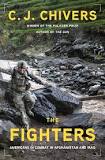America's Fighters

Robert Soto’s patriotism is unquestioned. He was a middle schooler in the Bronx when the World Trade Center towers fell in 2001. After visiting the site, he vowed to join the Army when he turned 18; he made the grade a year sooner, in 2007, after persuading his father to sign the forms.
Two years later, in the Korengal Valley in Afghanistan, Soto and the soldiers of Second Platoon, Bravo Company, had their hands full. Their isolated outpost was set in grueling terrain, the climate was harsh, and they were battling an elusive enemy who largely decided when and where to fight. The Americans were losing men.
But they had their moments, too. On one night patrol they killed more than 10 Taliban fighters. Still, Soto began to have doubts. Why were they there, and what was their mission? Simply to skirmish with an enemy sheltered by a civilian population that didn’t want foreigners there? His war wasn’t the same one the generals and politicians were talking about, or the one he signed up for.
Soto boiled the mission down to its basics: “We’re here because we’re here.” The soldiers were fighting for each other.
Soto is one of six main characters in C.J. Chivers' new book, "The Fighters: Americans in Combat in Afghanistan and Iraq" (Simon & Schuster, 400 pp., ★★★★ out of four). The Pulitzer Prize-winning New York Times reporter brings two distant, and seemingly endless wars, back home to the homeland. It’s not a pretty sight.
The author first met some of his subjects as a reporter covering the wars in Afghanistan and Iraq. Chivers also is a former Marine infantry officer who served in the Persian Gulf War.
As the book’s title suggests, the author’s sympathies lie with the “grunts” on the front lines. And he is clear on his own views about the two wars: “On one matter there can be no argument. The foreign policies that sent these men and women abroad, with an emphasis on military activity and visions of reordering foreign nations and cultures, did not succeed.”
Of all the stories in this gripping and thought-provoking book, the saga of Dustin (Doc) Kirby, a Marine battlefield corpsman with two Purple Hearts, stands out. His trials are almost unimaginable. When he saved his first life in combat, that of a severely wounded Marine who had been shot through the head, he was overcome with guilt. Had he sentenced this man to a lifetime of misery?
Soon enough Kirby would have his own severe head wound to deal with, one that disfigured his face, even after reconstructive surgeries, and produced chronic pain. Stateside, his life would unravel, on pain pills, alcohol and self-pity. Then came divorce and a suicide attempt. To top it off, he felt guilty about leaving his buddies in Iraq.
His odyssey would include a dramatic face-to-face meeting with his former commander in chief, George W. Bush, who urged him, ironically enough, to “make better decisions.” And remarkably, he did just that, thanks in part to two surgeons who in 2016 undid and then improved on what government doctors had done to his face nearly a decade earlier – helping to make him whole again.
Chivers writes that afterward Kirby’s mother questioned why proper care had to come from private, pro bono doctors. She asked, “Was this the country we wanted to be?”